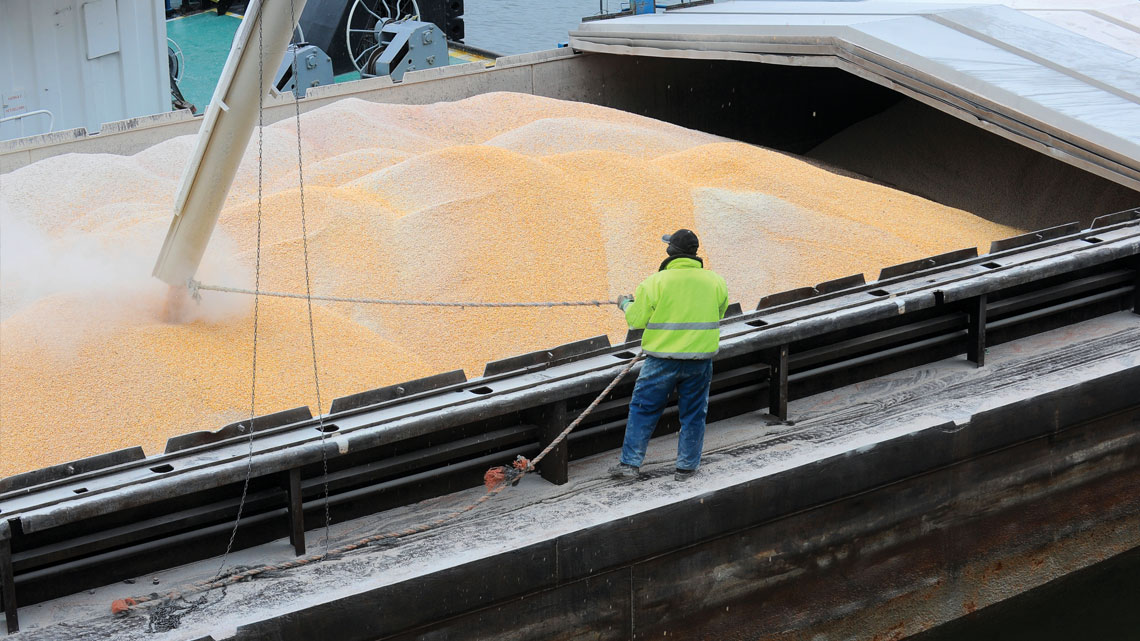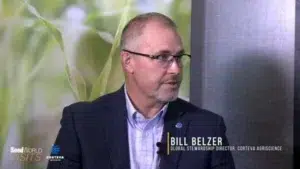Should China dictate what new technologies U.S. farmers have access to?
Some of the trading issues between the United States and China have brought trait stewardship front and center in discussions between the seed industry, farmers and grain handlers. It’s also the subject of much controversy and is the source of litigation between Cargill and Syngenta.
At the center of all these discussions has been Syngenta’s Agrisure Viptera and Agrisure Duracade corn. Agrisure Viptera was launched in 2011 and is designed to control armyworm, while Duracade was launched in 2014 and combines two modes of action for corn rootworm control — estimated to cost U.S. farmers more than $1 billion each year.
Prior to commercializing both of these products, Syngenta properly complied with all regulatory and legal requirements. Not only did it receive permission to grow both products in the United States, but it received import approvals for Viptera from Japan, South Korea, Mexico, Colombia and the European Union. However, you’ll notice that China is
missing from the list.
Syngenta filed for import approval with Chinese officials in March of 2010 and has since been waiting. After more than four years, China has still not approved Agrisure Viptera and Duracade remains on the waiting list, as well.
It wasn’t until two years after commercialization, in November of 2013, that China began rejecting shipments of corn because it had detected the presence of MIR 162 or Agrisure Viptera. Since then, Cargill says that China has virtually halted corn trade with the United States.
As a result, on Sept. 12, 2014, Cargill filed a lawsuit in Louisiana state court against Syngenta Seeds for commercializing Agrisure Viptera, MIR 162, corn seed prior to obtaining import approval from China. Cargill claims losses of $90 million as a result of the launch of the traits without Chinese approval.
“Unlike other seed companies, Syngenta has not practiced responsible stewardship by broadly commercializing a new product before receiving approval from a key export market like China,” says Mark Stonacek, president of Cargill Grain & Oilseed Supply Chain North America. “Syngenta also put the ability of U.S. agriculture to serve global markets at risk, costing both Cargill and the entire U.S. agricultural industry significant damages.”
Cargill reports that a study by the National Grain and Feed Association estimates that U.S. exporters and farmers have lost up to $2.9 billion because of the uncertain trade environment.
On the flip side, “Syngenta believes that the lawsuit is without merit and strongly upholds the right of growers to have access to approved technologies.” The company says that it’s been fully transparent in commercializing the Agrisure Viptera trait during the past four years and will continue to do so with Agrisure Duracade.
Chuck Lee, Syngenta North America head of corn, says that the company not only launched Viptera with full legal regulatory compliance, but the company also had key stakeholder approval from organizations, such as the National Corn Growers Association and the American Seed Trade Association.
While trade remains a concern, Syngenta leadership believes the rejected shipments have more to do with the political environment versus the technology.
“In the past five years, China has arbitrarily moved the level needed for approval,” Lee says. “It was maybe an opportunistic product [Viptera] that they could use to help mitigate their supply and demand problem in the country.”
He adds that there are some misperceptions about China among growers. “We need to understand that China is not a significantly large market,” Lee says. “They are less than 1 percent of the market for whole kernel corn. We’re not trying to say that they’re not significant; we’re just trying to show that 98 percent of the market accepts the trait.”
Access to New Technology
Lee emphasizes that this issue is bigger than Viptera and bigger than China. “We have grain elevators with signs up saying they won’t accept products with certain traits — not just Syngenta,” he says. “We have a very, very safe product and growers have a right to grow it.”
With this belief, the Gavilon Group LLC — a global commodity supply chain manager — partnered with Syngenta to offer the Right to Grow program in 2014. This program is designed to help farmers who grow Agrisure Duracade find an end-market for their grain.
Greg Konsor, Gavilon vice president and general manager for North American grain, says this issue is on the radar screen of other seed companies, too, when it comes to new traits.
“New traits are coming,” he says. “And they are trying to figure out how they are going to handle it. They [other seed companies] see this slow down in the approval of traits around the world, and they don’t know how long they can hold this stuff off before they have to do some sort of initial launch.”
Since Viptera’s launch, Syngenta has licensed the product to approximately 50 other seed companies in the United States. Through its market research, Syngenta says about half of the growers want new technology — “they are innovators and want to drive yield,” Lee says, noting that the other half of the market is more tentative and concerned about the market and the exportation of corn.
Cargill’s Dave Baudler, president of Cargill AgHorizons U.S., says he understands that new innovations in seed allow farmers to meet the growing demand for food, feed and fuel. He says Cargill is an advocate for new technology, including new genetically modified seed products.
A Shared Responsibility
Cargill’s Stonacek believes that seed companies, farmers, grain handlers, exporters and others have a shared responsibility to maintain and preserve market access when introducing new technology. “The risks — as well as the rewards — need to be shared across the marketplace by all of the stakeholders,” Stonacek says.
In planting this new technology, Lee says growers have a responsibility of making sure it gets to a market that will accept it. Throughout the process, Syngenta has been working with growers and the value chain. “If a grower has issues, they can call Gavilon’s 1-800 number and get help finding a marketing channel for their grain,” Lee says.
NCGA is also helping to facilitate the adoption of new technology while balancing the concern of trade with its Know Before You Grow website.
Lee acknowledges there’s frustration from grain handling companies and growers. He hopes it’s a short-term pain for a long-term gain that helps to give growers access to new technologies.
RIGHT TO GROW
Syngenta teamed up with The Gavilon Group LLC to bring farmers the Right to Grow program. Gavilon agreed to accept Agrisure Duracade grain at market price while providing stewardship and distribution services for farmers. Greg Konsor, Gavilon vice president and general manager for North American grain, says that in May, the company began contacting growers to let them know that it would help facilitate the marketing of their grain. “We built out the destination side and then worked to inform growers that in X county, these locations are approved to accept Duracade,” Konsor says. In August, Gavilon distributed bills of lading based on the number of units ordered. “When the grower went to market, he had a bill of lading ready so it could be stored in the appropriate bin,” Konsor says. “Once elevators had signed the bill of lading, we asked them to send us a copy so we could track it. Throughout the year, we worked with 2,500 farmers, representing 24.5 million bushels in 2014.”












